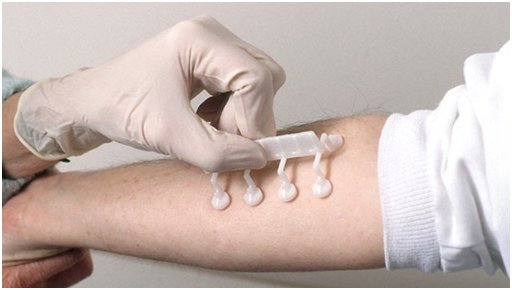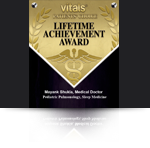Ready to Schedule an
Appointment with Dr. Shukla?
ALLERGY TESTING IN NEW YORK
Allergy Testing New York
We offer skin allergy testing of common inhaled allergens (triggers) to help in the treatment of your sinus, nasal, throat, chest or ear symptoms. Trees, grass and weed pollens common to the New York City area will be tested, in addition to a wide variety of mold spores and household irritants such as dust, dust mites, and pet dander. Food allergies are evaluated as well. Separate blood tests may be required if severe or life-threatening food allergies are suspected.
Why Test for Allergies?
We test for allergies to determine how likely it is that your symptoms are being caused by inhaled allergens. Some conditions, like non-allergic rhinitis, food allergies, infections, and gastric reflux, can cause symptoms that look just like allergic rhinitis. By testing, we will have a better idea which substances your body reacts to and whether they’re playing a role in your symptoms.
We also want to identify your specific allergy triggers so you can AVOID them. Avoidance of triggers is one of the keys to effective treatment.
Also, once we know your specific allergic triggers, we can develop a long-term desensitization plan for your allergens, known as immunotherapy.
How Is Skin Testing Performed?
Skin testing is done by a skin prick test, and involves applying multi-prong devices to your arms or back. Each prong is dipped into a tiny amount of an allergen. These devices have no needles and do not break the skin. A total of 70 allergens are placed on your skin, as well as a small amount of histamine to make sure that your skin produces a normal, visible reaction to allergens
Skin reactions are measured after 20 minutes. Itching, redness and wheals (small, itchy lumps) show that you are sensitive to a particular allergen or to histamine. If there is no response to histamine, the test is not valid. The most common reason for a lack of response to histamine is the use of antihistamines or other medications that block the normal histamine response.
Are There Any Side Effects to Skin Testing?
Skin testing is not painful and is usually tolerated well, other than itching and redness. We will provide a soothing cream for you after the test. Occasionally, large responses may take a few hours to clear. Rarely, they may take a couple days to clear. Let us know if a delayed reaction occurs (a wheal develops after 2-3 days, where one was not seen before). Wheezing, cough and flare of allergy symptoms may occur with testing, especially if there were large skin reactions.

How Must I Prepare for the Test?
For two weeks before the test, do not take any medications containing antihistamine. These include:- Benadryl
- Zyrtec
- Claritin
- Allegra
- Azelestine
We will ask you about other medications you may be taking and let you know if they should be stopped before the test. Do NOT discontinue your asthma medications. Inhaled corticosteroids and Singulair should be taken regularly, as prescribed.
Normal Results
A negative test result means there were no skin changes in response to the allergen. This negative reaction most often means that you are not allergic to the substance.
Rarely, a person may have a negative allergy test and still be allergic to the substance.
What Abnormal Results Mean
A positive result means you reacted to a substance. Your health care provider will see a red, raised area called a wheal.
Often, a positive result means the symptoms you are having are due to exposure to that substance. In general, a stronger response means you are more sensitive to the substance.
People can have a positive response to a substance with allergy skin testing, but not have any problems with that substance in everyday life.
Skin tests are usually accurate. However, if the dose of allergen is large, even people who are not allergic will have a positive reaction.
Your health care provider will consider your symptoms and the results of your skin test to suggest lifestyle changes you can make to avoid substances that may be causing your symptoms.
Who Should NOT Have Allergy Skin Tests?
If you are taking beta-blockers (like Toprol, Metoprolol, Inderal, Atenolol) for high blood pressure or a heart condition, or have asthma that is difficult to control (frequent wheezing, shortness of breath, or use of inhaler) you should not do skin tests because of the increased risk for a severe allergic reaction called anaphylaxis. Blood tests should be done instead.
Awards and Recognition
Dr. Mayank Shukla Top-Rated Pulmonologist 2018 - 2025
















